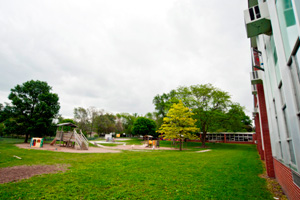Montessori Information

Mission Statement:
“Together we celebrate diversity, respect, and love for learning through the Montessori Method. Our environment nurtures and prepares the child for a global community.”
Vision Statement:
“All humans (CHILDREN and ADULTS) flourish in society (ENVIRONMENT).”
- Montessori schools begin with a respect for children as unique individuals. They work from a deep concern for their social and emotional development.
- Montessori consciously teaches children to be kind and peaceful.
- Montessori classes bring children together in multi-age groups, rather than classes comprised of just one grade level. Normally, they span three age levels. Children stay with their teachers for three years. This allows teachers to develop close, long-term relationships with their pupils, allows them to know each child’s learning style very well, and encourages a strong sense of community among the children.
- Montessori classrooms are not run by the teachers alone. Students are taught to manage their own community and develop leadership skills and independence.
- Montessori assumes that children are born intelligent; they simply learn in different ways and progress at their own pace. The Montessori approach to education is consciously designed to recognize and address different learning styles, helping students learn to study most effectively. Students progress as they master new skills, moving ahead as quickly as they are ready.
- Montessori students rarely rely on texts and workbooks. Why? Because many of the skills and concepts that children learn are abstract and texts simply don’t bring them to life. Also, in the case of reading, many reading series fail to collect first-rate and compelling stories and essays; instead, Montessori relies upon hands-on concrete learning materials.
- Learning is not focused on rote drill and memorization. The goal is to develop students who really understand their schoolwork and the process involved.
- Montessori students learn through hands-on experience, investigation, and research. They become actively engaged in their studies, rather than passively waiting to be taught.
- Students develop self-discipline and an internal sense of purpose and motivation. After graduation from Montessori, these values serve them well in high school, college, and in their lives as adults.
- Montessori curriculum promotes mutual respect and a global perspective.
- Students develop a love for the natural world. Natural science and outdoor education is an important element of our children’s experience.
- Montessori students learn to collaborate and work together in learning and on major projects. They strive for their personal best, rather than compete against one another for the highest grade in the class.

